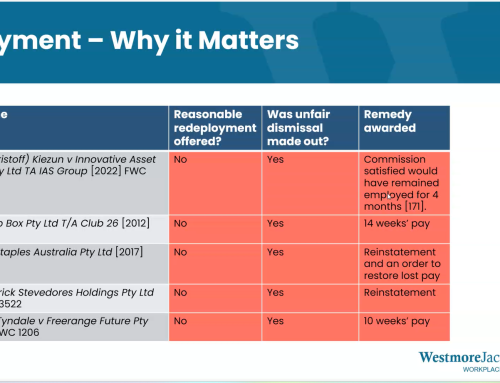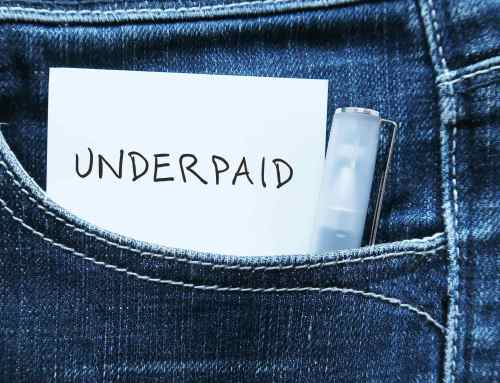
The Fair Work Amendment (Protecting Vulnerable Workers) Act 2017 (“the Amendment Act”) commenced on 15 September 2017. The Amendment Act is aimed at punishing and discouraging the type of conduct which was the subject of several widely publicized underpayments scandals. The explanatory memorandum to the Amendment Act notes:
“The Inquiry into 7-Eleven report, for example, revealed not only systematic underpayment of migrant workers, but also a practice of some franchisees paying their employees the lawful rate, but then coercing them to pay back a certain proportion of their wages to the employer in cash.”
One important change is the inclusion of a new category of contraventions of the Fair Work Act called serious contraventions (“Serious Contraventions”). The Amendment Act also includes changes to the potential liability of franchisors and holding companies, a strengthening of the Fair Work Ombudsman’s evidence-gathering powers, and express prohibitions on employers unreasonably demanding employees pay back their wages (also known as ‘cash-back arrangements’). Other changes create a renewed importance on employee record keeping.
This article addresses the introduction of the Serious Contraventions penalty regime and the increased importance of making and keeping employee records and providing employees pay slips in accordance with the Fair Work Act.
Serious Contraventions
The Amendment Act introduces a new category of contravention of the Fair Work Act called a Serious Contravention. Employers who engage in a Serious Contravention of certain Fair Work Act provisions may be subject to a significantly higher penalty than before. These Fair Work Act provisions include (amongst other things):
- the National Employment Standards;
- a relevant Modern Award or Enterprise Agreement;
- the Fair Work Act’s requirements relating to the method and frequency of payment;
- the Fair Work Act’s requirements relating to the provision of pay slips and keeping of employee records;
- the prohibition on unreasonable requirements on employees to spend any part of their wages in the performance of their work.
Individuals who engage in Serious Contraventions of these (and certain other) provisions of the Fair Work Act could be liable for penalties up to 600 penalty units. 600 penalty units is currently equal to $126,000. Corporations who engage in a Serious Contravention could be liable for penalties of up to 3000 penalty units. Currently, 3000 penalty units equals $630,000. These penalties are 10 times higher than before.
What is a Serious Contravention?
A person will have engaged in a Serious Contravention if they both knowingly contravened particular provisions of the Fair Work Act, and the conduct which constituted the contravention was part of a systematic pattern of conduct relating to one or more other people.
A court may regard the following factors when determining whether there was a systematic pattern of conduct:
- the number of contraventions the person committed;
- the period of time over which the relevant contraventions occurred;
- the number of other people affected by the relevant contraventions;
- whether the person also failed to make or keep employee records or provide the employee with pay slips; and
- the person’s response, or failure to respond, to any complaints about the relevant contraventions.
A Reversed Onus of Proof
Under the changes, employers who, without a reasonable excuse:
- fail to make or keep employee records as required by the Fair Work Act and its regulations; or
- fail to provide employees with pay slips in accordance with the Fair Work Act and its regulations,
will need to disprove allegations that the employer contravened one of the above provisions of the Fair Work Act.
This could be a game changer. It represents a change in the burden of proof where an employer fails to make or keep records. Previously, the person alleging the employer had contravened the Fair Work Act had to prove the employer had contravened the Act.
This change means employers must be careful to provide their employees with pay slips, and make and retain employee records if they wish to disprove, for example, an underpayment of wages claim.
Conclusion
Employers should be careful to adhere to their employees’ relevant minimum standards of employment.
The changes also mean a renewed importance for employee record keeping and providing pay slips. Employers should be vigilant in providing pay slips and in the creation and retention of employment records. Failure to do so could result in an employer facing significant difficulties disproving certain allegations, such as a claim of underpayment of wages.
Adam Colquhoun, Principal, WestmoreJacobs
This article is general information only. It is not legal advice. If you need legal advice, please contact us.






Leave A Comment